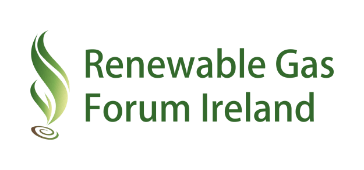A target of 12% biomethane injected into the gas grid by 2030, means Ireland can:
- Save 2.6m tonnes of CO2 per annum attributed to energy.
- Potentially save a further 14 Mt CO2 per annum in agriculture via carbon sequestration accounting.
- Comply with regulations from 2021 under EU Green Deal and Green House Gas (GHG) Protocol reporting.
- Support best practice in farming and land management towards organic farming.
- Support national and foreign direct investment decarbonisation targets.
- Secure current foreign direct investment and jobs.
- Support competitiveness and sustainability to attract additional investments.
- Help achieve environmental, social and governance objectives.
- Create over 3,000 sustainable jobs for rural Ireland in developing, operating and servicing the system, many of them specialised.
This target would require in the region of 240-250 anaerobic digestors to be constructed across Ireland.
Industry leaders are already demanding a switch to renewable gas for their businesses and, through RGFI, are energetically pursuing the vision. This scale of development will require government supports via policy and capital investment and alignment of targets for renewable energy.
Ireland’s six key advantages
- National cross-industry approach
Ireland already has a strategic, cross-industry, approach under the direction of RGFI – the established, national, competent co-ordination body and design authority. The Forum, in association with industry and state organisations, is already supporting regional and local strategic development, through the application of standardisation, clustering, commercial structures, finance and funding models, guidelines on project feasibility, e-business case development etc. - Sustainable agriculture and potential high availability of feedstock
Ireland has many natural advantages when it comes to sustainable food production. We are also a self-sufficient food producing nation with agriculture representing 9.5% of total exports in 2019. Our grass-based agriculture means that feedstock is available and sustainable and, mainly because of this, Ireland has the greatest potential per capita of all EU countries to produce renewable gas.
Further information - Alignment with EU Policy direction
Ireland is well placed to align with the targets set out in the EU Green Deal and Farm to Fork Strategy. With the early adoption of the EU Farm to Fork Strategy, by RGFI and its Food Industry Collaboration Group, the development of an indigenous AD biomethane industry and its complementary non-energy by-products will support Ireland’s implementation of the EU Green Deal initiative, reducing GHG emissions and chemical fertilisers, improving soils for organic production, and providing carbon footprint labelling. Specifically, AD biomethane is key to delivering the decarbonization of the Irish dairy, drinks and food industry. - Existing infrastructure
A significant part of the required infrastructure is already in place as Ireland already has one of the most modern and advanced gas networks in Europe. This gas network is a €2.6bn asset owned by the people of Ireland. - Robust governance
Ireland’s robust framework for planning and consents can be applied to this industry. RGFI has identified existing mechanisms to assess, approve and monitor the construction and operation of AD biomethane facilities in the Republic of Ireland. In addition, RGFI members in the technology sector, have proven global reputations in the construction and sustainable operation of renewable gas facilities. - Accreditation system in place
A central component of the RGFI adopting best practice, is the Irish Green Gas Certification Scheme. This Certification Scheme provides confidence and reassurance to the gas consumer and ensures the sustainable production of biomethane from anaerobic digestion. It will track the sustainability criteria for biomethane production in compliance with RED II, applying a full life cycle assessment analysis to trace all emissions associated with the production and consumption of the gas.
